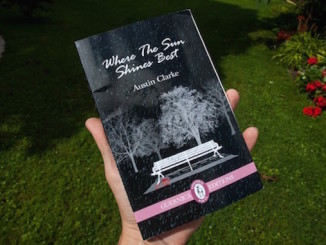
Just the other week I was looking for some new poetry to read when I came across Souvankham Thammavongsa‘s newest collection, Light. Thammavongsa was born in a Lao refugee camp in Thailand and immigrated to Toronto in 1979. Her newest collection, Light, won the 2014 Trillium Book Award for poetry, so I was quite excited to take a peek. Thammavogsa’s whimsical collection of poems offers some compelling insight into the connections between language and thought.
One of the most striking aspects of Light is how many observations Thammavogsa draws from other languages and cultures. The second poem, in the collection “Ljos” opens with two lines that begin a discussion about the nature of language that works its way through the whole collection:
In Icelandic, the word for light is ljós
And the word for poem is ljóđ
What happens at the end can change everything
Such observations quickly become commonplace as one reads through. The next poem, “Fie,” for example, examines the various meanings of the Lao word for “fire,” whether as a force that consumes, as a medium of illumination, or as the thunder that is the aftereffect of lightning, or even as a surprise.
More impressively, the poem “The Box a Light Bulb Comes in” draws such linguistic connections between language and culture more explicitly:
It says this lightbulb will last one year
Its light output is 830 lumens, its life is 1,500 hours, it uses 60 watts
A Buddhist Temple is called a wat
It never gets replaced and one is never built to look just like the other
Indeed, throughout the collection, Thammavongsa examines the connections between various languages’ words and for light, with the word itself appearing in nearly all of the 42 poems, but not in “The Sun Does Not Know,” a poem describing the sun in which its absence is nearly palpable.
Thammavongsa supplements her linguistic observations with various insights, all of which are presented in such a way as to invite the reader into a kind of running conversation. Whether she is ruminating on questions of biology, as in “Colossal Squid,” “Parsley” or “The Fish in Mammoth Cave,” telling stories like “Perfect,” “Dream,” and “I Remember” or just boldly asking questions, as in “Questions Sent to a Light Artist That Were Never Answered,” Light works not only as a delightful conversation piece, but also as an invitation to the reader to make connections, to observe the workings of nature, and to question one’s method of thinking about the world.




